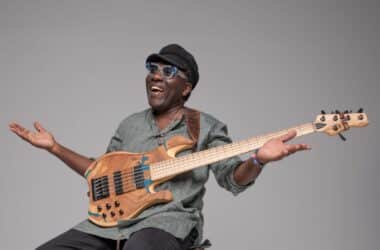Southern Baptists, the country’s largest Protestant denomination, voted on Wednesday to oppose the use of in vitro fertilization. The vote was an indication that evangelicals are increasingly open to arguments that equate embryos with human life, and that two years after the overturning of Roe v. Wade, “fetal personhood” may be the next front for the anti-abortion movement.
More than 10,000 delegates, called “messengers,” have gathered in Indianapolis for the denomination’s annual meeting, which is closely watched as a barometer of evangelical sentiment on a variety of cultural and political issues. The vote on Wednesday was the first time that attendees at the Southern Baptist meeting have addressed the ethics of in vitro fertilization directly.
The resolution proposed on Wednesday called on Southern Baptists “to reaffirm the unconditional value and right to life of every human being, including those in an embryonic stage, and to only utilize reproductive technologies consistent with that affirmation, especially in the number of embryos generated in the I.V.F. process.”
It also exhorted them to “advocate for the government to restrain” actions inconsistent with the dignity of “every human being, which necessarily includes frozen embryonic human beings.”
A vast majority of the delegates oppose abortion, but fertility treatments are widely used by evangelicals. Although the process of in vitro fertilization often results in the destruction of unused embryos, many Southern Baptists see that as fundamentally different from abortion because the goal of fertility treatments is to create new life.
Before the vote, messengers heard several emotional testimonies, some from Baptists who hoped to soften the language of the resolution, titled “On the Ethical Realities of Reproductive Technologies and the Dignity of the Human Embryo.”
Zach Sahadak, a messenger from a church in Ohio, came to the microphone to share that he has a son born via in vitro fertilization and that his wife was pregnant with a second child by the same method.
“I have 10 embryos I love,” Mr. Sahadak said. “I am for the sanctity of life and for the sanctity of embryos. I’m against the idea that this technology is so wicked that it cannot be employed.”
Another messenger, Daniel Taylor from Michigan, spoke about his godson who was born through the procedure. “I thank God for I.V.F.,” he said.
With almost 13 million church members across the United States, the Southern Baptist Convention has long been a bellwether for American evangelicalism. Its reliably conservative membership makes the denomination a powerful political force, and its debates this year have attracted widespread interest from outside commentators and politicians.
Last month, the head of the denomination’s public policy arm sent a letter to the U.S. Senate asking legislators to clamp down on in vitro fertilization, stating that the practice harms children and women, who may be unaware of “complications and moral concerns.”
The resolution affirmed on Wednesday is not a ban and will have no binding impacts on families in Southern Baptist churches who are pursuing fertility treatments. The amendment expresses empathy for couples experiencing infertility, and affirms that all children are a gift from God, no matter the circumstances of their conception.
The resolution does not explicitly oppose the creation of embryos “in vitro” (in glass), but it does criticize the destruction of embryos, condemning the I.V.F. process as commonly practiced. A couple will typically have multiple embryos created to increase the chances of a successful implantation, and the unused ones are either stored, donated or destroyed.
But its adoption sends a strong message on evangelical sentiment around in vitro fertilization, months after the Alabama Supreme Court ruled that under the state’s laws, frozen embryos are to be considered children.
That ruling sparked an immediate backlash, including from many Republicans. The Alabama Legislature quickly passed a bill to protect in vitro fertilization providers in the state, and Senators Ted Cruz of Texas and Katie Britt of Alabama introduced federal legislation intending to protect the procedure.
The authors of the Southern Baptist resolution acknowledged that the issue is divisive even among strongly anti-abortion Christians, and that Republicans have leaped to preserve access to fertility treatments.
“I want to do more than nudge Republicans who are against us on this. I want to call them out for their error and inconsistency,” R. Albert Mohler Jr., president of the Southern Baptist Theological Seminary in Louisville, Ky., said in an interview one day before the vote.
Mr. Mohler submitted the resolution with Andrew T. Walker, an associate professor of Christian ethics and public theology at the same school.
Even as the conservative body made a statement against I.V.F., many of the same voters rejected a move to crack down on congregations with women in pastoral leadership. The vote dealt an unexpected rebuke to a hard-right faction that has been jockeying for influence in the denomination.
The amendment would have added language to the denomination’s constitution saying that “only men” could be affirmed or employed “as any kind of pastor or elder as qualified by Scripture.” The amendment’s language echoes the Southern Baptist statement of faith, but opponents warned that it was unnecessary and risked alienating and punishing churches that broadly align with Southern Baptist values.
The Supreme Court’s return of the regulation of abortion to the states has reopened arguments by the anti-abortion movement, conservative legal theorists and Republican legislators that fetuses starting at the earliest stages should be granted the same legal protections as any person.
Many anti-abortion organizations oppose the procedure, but they rarely emphasized the position publicly before the Alabama ruling.
“We oppose creating disposable people,” the president of Students for Life of America, Kristan Hawkins, said by email about the Southern Baptist resolution. A spokeswoman for the organization said it supported the Southern Baptist resolution.
In 2021, Southern Baptists passed a resolution declaring “unequivocally that abortion is murder.” But going into the vote on in vitro fertilization, some Southern Baptists expressed concerns that the typical Baptist in the pew did not connect fertility treatments with abortion, although they acknowledged that the conversation was evolving. Some pastors said they were wary of the prospect of returning to their home churches and reporting that they voted to condemn a process that created their congregants’ children and grandchildren.
But the resolution’s supporters depicted it as a natural extension of anti-abortion beliefs. At a luncheon on Monday hosted by a new conservative Christian advocacy group with Southern Baptist ties, Mr. Mohler compared the nascent evangelical conversation around in vitro fertilization to the years after the Roe v. Wade decision, when Catholics led the anti-abortion movement and evangelicals were less attuned to the issue.
“We had to learn after 1973 as evangelicals,” Mr. Mohler said. “We had to learn how to get this issue right.”
Urging attendees to be consistent in their advocacy, he described in vitro fertilization as it is commonly practiced as “as immoral as anything we can imagine if we state the proposition clearly, but a lot of evangelicals don’t want to state the proposition clearly.”
Two days later, the vast majority of Baptists on the floor of the meeting voted to condemn the practice.
Source link






